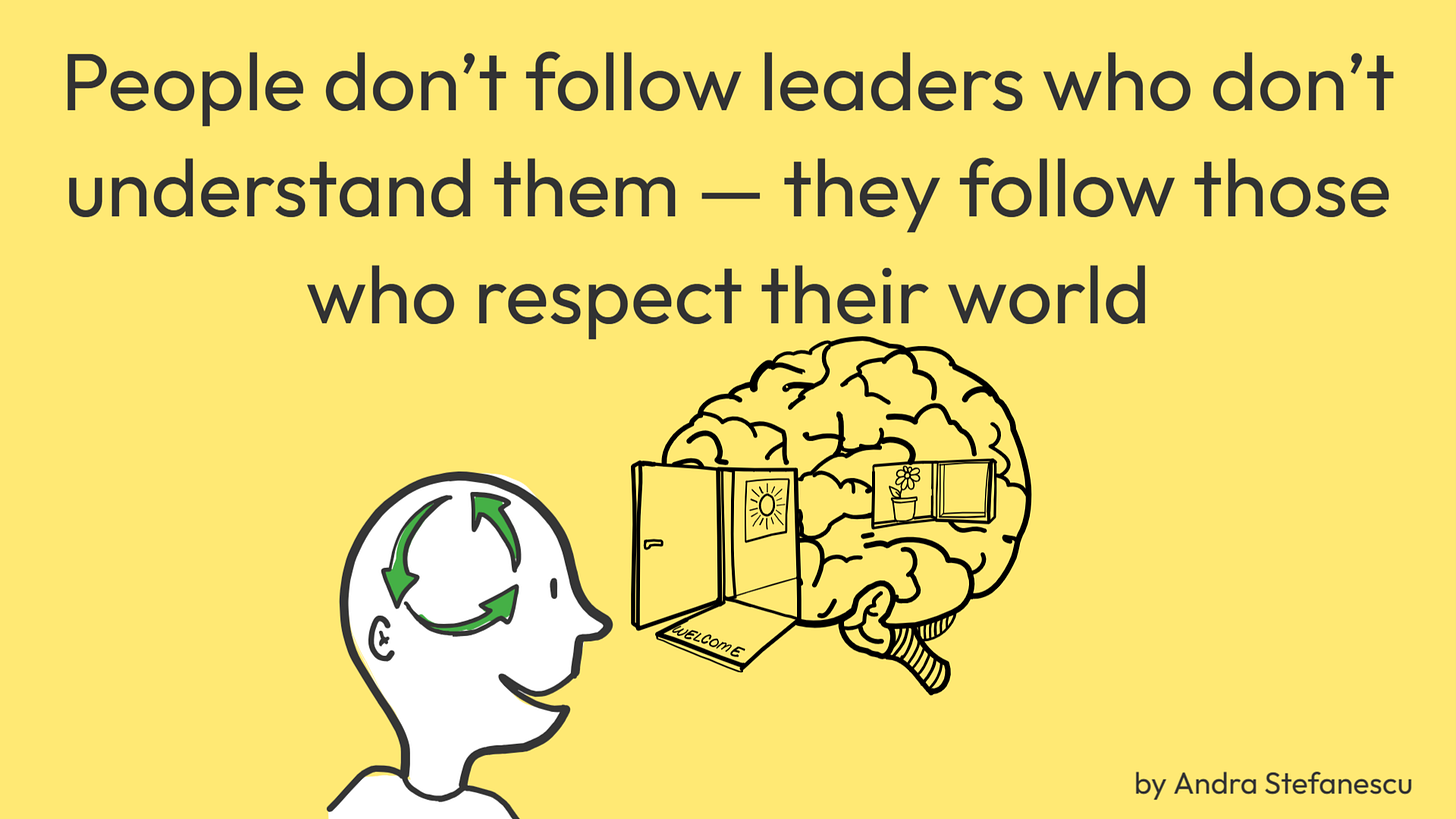People don’t follow leaders who don’t understand them — they follow those who respect their world
How honoring someone’s perspective can transform influence, build trust, and create lasting impact
In leadership, influence is everything, but influence doesn’t begin with charisma or strategy. It begins with respect.
One of the most powerful yet underused tools in a leader’s arsenal is respect for someone else’s model of the world. This idea, rooted in neurolinguistic programming (NLP), challenges the urge to immediately correct, reject, or reshape another person’s reality. Instead, it invites us to enter their world with curiosity, not judgment.
Why This Matters in Leadership
Imagine you're a team leader at a tech company. One of your senior developers, Lena, tells you she feels anxious whenever a tight deadline approaches — not because of the workload, but because it reminds her of a previous toxic work environment where deadlines were used as threats.
The old-school leadership move might be to reassure her:
“You’re overthinking it — this isn’t the same. Just stay focused.”
But that dismisses her lived experience.
Now, apply respect for her model of the world:
“Thanks for sharing that. I can see why these deadlines might trigger stress for you. How can we structure things so that you feel supported and safe even under pressure?”
See the difference?
You didn’t have to agree with her fears. You just had to honor her reality as valid. That moment builds psychological safety, deepens loyalty, and encourages Lena to perform from a place of trust rather than fear.
Leadership That Respects Is Leadership That Lasts
People want to be led by those who see them, not just their performance metrics. Respecting someone's worldview doesn’t mean surrendering your own — it means building a bridge between yours and theirs.
Ask yourself today:
Where might I be dismissing someone else’s reality?
How can I validate without endorsing?
What would change if I started by seeing their world before insisting on mine?
Because when leaders respect the world of others, others will respect their leadership.
References:
NLP Practitioner Program by Gina Veverita





This piece stays with me. As someone steeped in mindfulness and self-awareness work, I’m struck by the quiet power of this moment—not only from the leader, but also from Lena.
It takes real courage to speak openly about anxiety, especially in professional spaces where vulnerability is so often masked. Lena’s honesty wasn’t just personal—it was an invitation. And her leader met it not with correction, but with respect.
When we honor someone’s model of the world, we don’t just build trust—we help soften the grip of old fears, of limiting beliefs that quietly shape behavior.
Thank you, Andra, for showing how leadership grounded in presence can become a healing force—for both the individual and the culture they’re part of.